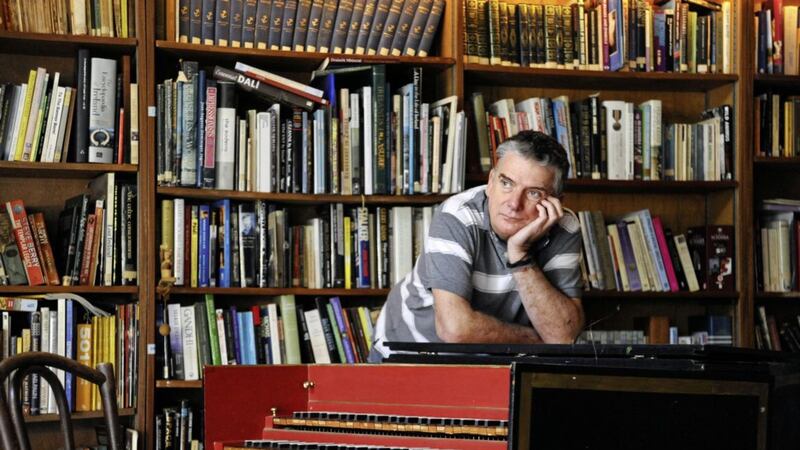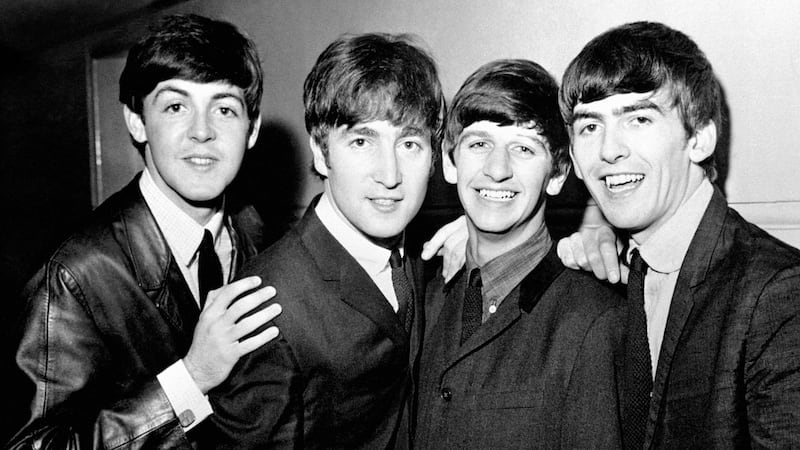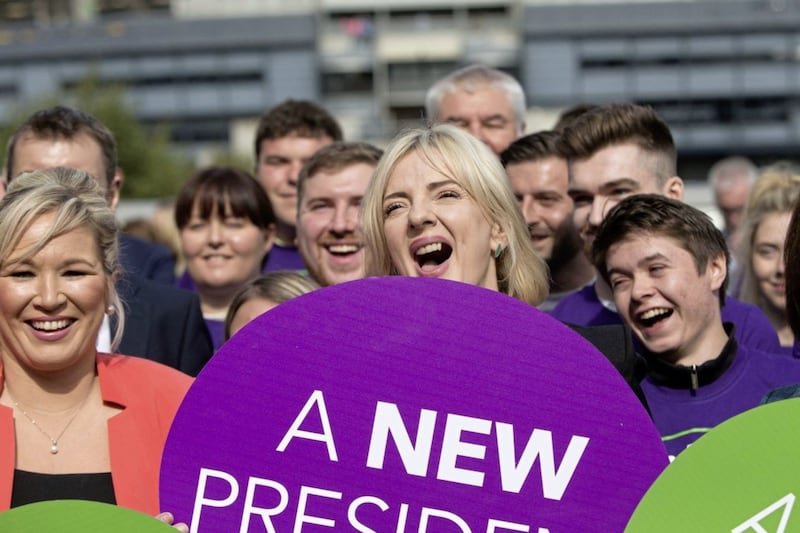MANY children rebel against their parents and try to be as different to them as possible. Luckily, Peadar Ó Riada was spared that teenage angst and today he is known not only as 'the son of the great Seán Ó Riada' but as a composer and musician and choir director in his own right.
His father was of course one of the great post-war Irish composers, celebrated for his marriage of traditional and classical forms, for his acclaimed soundtracks to films such as Mise Éire, and for his role in the revival of traditional music in the 1960s. He died at the cruelly young age of 40 in 1971 when Peadar was still a teenager.
Ó Riada snr was interested in what it meant to be Irish in the modern world while still revering the past and looking to the future and whether the two were compatible and the same goes for Peadar. Living in the Cúil Aodh Gaeltacht in rural west Cork, he has found that the two go firmly together.
“When I was growing up there was a sort of revolution going on under Seán Lemass and we had President Kennedy in the White House and it seemed there were no boundaries any more.
"Here in the Gaeltacht we have a living culture which is still functioning and passed on from generation to generation. In all its richness, it's not an academic culture but, in this life the boundaries between the past and the present are not as defined as they are now in western civilization.
"For example, when a neighbour is helping my mother in the garden, the talk will be about old stories, verses, poems, history, piseogs, prayers and there would be continuous instruction and correction. We have a great respect for words and insist that they are used the right way. There would be a prayer or a saying for every occasion," he says.
Added to this cultural environment was the choir Seán Ó Riada started in 1964, Cóir Chuil Aodha. Peadar joined, of course, just before he reached his 10th birthday and and when Seán died seven years later, Peadar took over the mantle.
It was a male choir and it wasn’t until 1986 that Ó Riada Óg set up Cór Ban Chúíl Aodha for the women. Why did it take so long?
“Well first of all, there had to be the recognition that there was the need for one,” says Peadar. “I came to the conclusion when I realised that the female energy wasn’t being given a communal voice. It had more than a communal voice in many other areas because most of the more famous singers around here are women but the men’s energy is in the spiritual area – that is where the men’s energy is most potent – whereas the women, they make this world, the bodies we inhabit and the senses we feel so everything we see and feel and touch is fashioned by female energy.
"That is why I did a musical setting of Caoineadh Airt Uí Laoghaire (one of the greatest love poems ever), which was writtten by Eibhlín Dubh Ní Chonail.” he says.
The piece can be heard on Ó Riada’s new album Ónóir ('Honour' in English) which was commissioned by Gael Linn, the same company that commissioned his father to write the score for Mise Éire. The album is described as an attempt to “conjure up the primal consciousness of the Irish”; it features music from trad band Téada, piper Mick O’Brien and the young harper Oisín Morrison.
Ó Riada – whose sister, incidentally, is Sinn Fein MEP Liadh Ní Riada – is a fan of Patrick Pearse and his belief in the power of Irish mythlology to create a better society in the here and now. The opening track, Móra Duit, a Thír Ár nDúchais, is a poem of the 1916 leader in which he describes his love for Ireland.
In another interview, Ó Riada has said of the poem: “In it, one finds how [Pearse] felt emotionally about this island. If you love the nation you won’t have people starving in doorways.”
So the ancient mythology and civilization of Ireland inspired Pearse, who inspired Ó Riada who sees qualities in that civilization which we can use to create a better future. A Gaelic continuum through at least two millennia.
No doubt these ideas would have stirred wonderful conversations between Sean Ó Riada and Seamus Heaney when the two met. In fact, Heaney and Ó Riada were friends and the Bellaghy poet wrote an affectionate elegy for Ó Riada in Field Work.
It is fitting therefore that Ó Riada fils should be appearing at the Helicon at the HomePlace in Bellaghy on Saturday February 25 at 2pm to perform a tribute to both his father’s work and to Heaney’s.
“I remember Seamus as a very nice, shy gentleman, very unassuming, but there was a bit of iron there too,” Peadar recalls. “I would have liked to have known him a lot better,” he says echoing no doubt what many people would have thought on hearing of Seamus’s death, “but I was of the wrong generation and I was too shy to be forward.”
For the gig in Bellaghy, Peadar will play settings of two of Heaney’s poems, The Republic of Conscience and The Stone from Delphi, as well as pieces from the Seán Ó Riada back catalogue and some of his own compositions.
As our conversation ends, I wonder what Peadar Ó Riada will be doing as I head home on the bus through the Belfast rush hour.
As well as being a composer, musician and choir director, his other interests include film directing and production, bee-keeping, painting, writing, alternative medicine, culture and traditions of different peoples and history.
That's enough to be getting on with!




